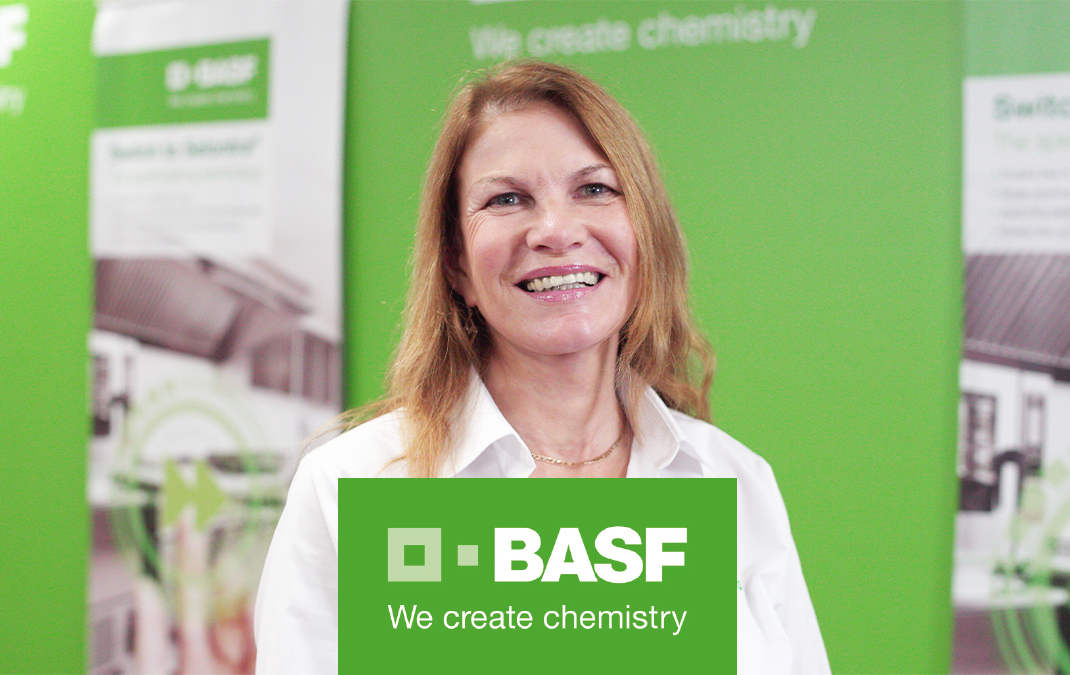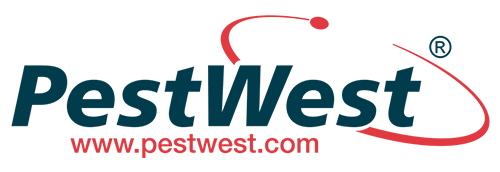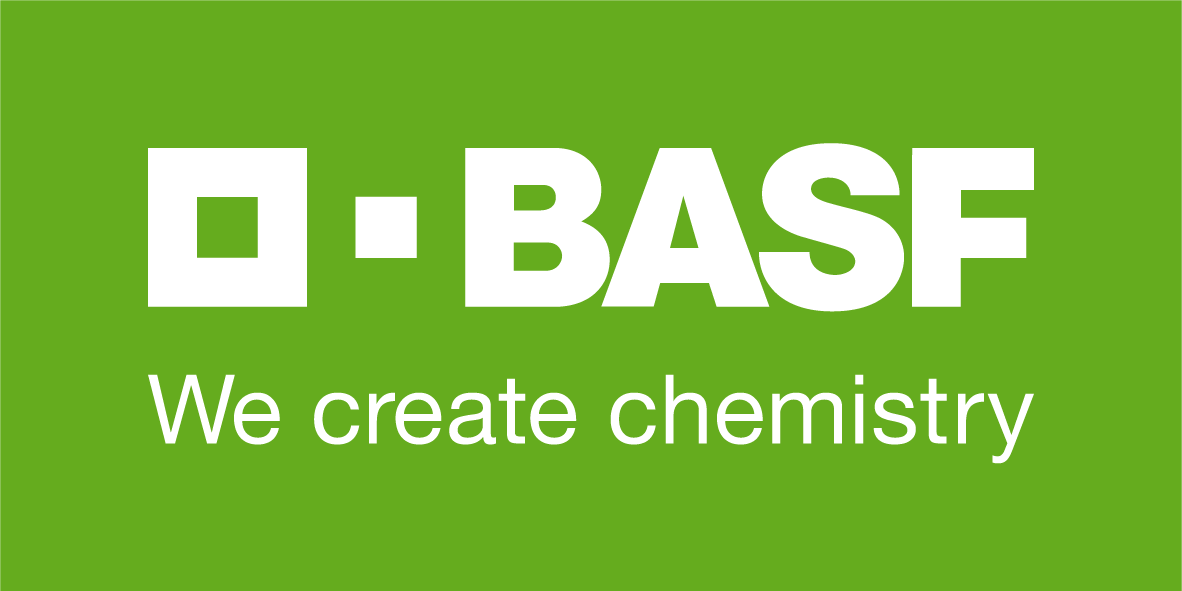Four decades at the forefront of rodent control: BASF’s Sharon Hughes looks back at her impressive career in the industry
After over forty years at the forefront of rodent control innovation, BASF’s Sharon Hughes has announced that she will retire from her role this summer. Here, Sharon discusses her impressive career over the years, from her proudest moment to what she’ll miss most about the pest control industry
INTERVIEW
Tell us a little bit about yourself! Where are you from and how did you get into the industry?
I was born and bred in Widnes, which is conventiently where the BASF rodenticide manufacturing plant is located and where the BASF research and development labortory was also to be found. When I left college, aged 18, I began working at Sorex as a junior lab technician involved in developing pest control products for both rodents and insects. I remained with Sorex for a couple of years before leaving to live in Greece on a gap year and re-think my career plan.
When I returned from sunny Greece, I realised that the part of my role at Sorex that I loved was working with rodents. So, I moved to London to study Applied Biology at the University of Greenwich. After graduating, I continue to focus on research. My first position was working on a Pfizer-funded project investigating new drugs to help with peptic ulcers. My next position involved moving back North to Liverpool, at University and the School of Tropical Medicine, working on anti-malarial drugs. This project was funded by the World Health Organisation.
In 1989, 8 years after taking on my first role at Sorex, I returned to take on the role of Global Research & Development Manager, working specifically on rodenticides. While this new role encompassed mainly research and development, it also included efficacy data generation, competitor assessment and working with anticoagulant resistant strains rats and mice which were semi-wild colonies, and so behavied naturally like you would experience in actual rodent infestations, so this could be observed. BASF acquired Sorex in 2010 and I continued in this role under BASF but with a greater focus on rodents and rodenticides in regions outside of Europe.
When the laboratory closed in 2015, my role changed from Global Research and Development to Global Technical Marketing Manager for rodenticides. This was a big change for me and took me out of the laboratory and into more direct contact with the customer. I was really pleased how much I enjoyed this new work chapter, becoming more involved with meeting, training and liasing with customers. I was able to use the knowledge and expertise acquired while working in R&D to advise and support internally as well as distributers, customers and end-user on rodents and the safe and correct use of rodenticides.
What has been your most interesting or enjoyable part of the role?
For me, the most interesting aspect is the process was taking a concept, and then helping to progress this through the entire R&D product development process to bring something new to market. This is an incredibly lengthy but rewarding process as it can take many years of team work, blood, sweat and tears, and of course disappointments along the way before that concept becomes a viable product to successfully bring to market.
Take Selontra® as an example – we looked at over 1,200 different active ingredients as posible alteratives to anticoagulants, and that screening process was fascinating! Of that 1,200, there were only three or four that looked really promising, but for one reason or another they fell over at an important hurdle, such as palatability. As part of a review process of these screened actives, we revisited cholecalciferol. However, we started from the beginning to create a new rodenticide bait matrix. We looked at approximately 40 different cholecaliciferol block formulations and it was so interesting to watch the rodents and how they reacted to each slightly tweaked variation.
So marrying the research with rodent biology and behaviour, which always underlines everything, is very interesting to me. Even when you’re not involved in a study as such, to just sit and watch the dynamics of the rodent colony is fascinating! They are incredibly social, intelligent and complex creatures!
What has been your proudest moment in your career?
Definitely the development of Selontra®. We started working to find an alternative to anticoagulants in early 2010 and BASF didn’t acquire registration in Europe until 2020 – so it was ten years of going back and forth to get the formulation absolutely perfect and then completing the registration process!
We knew that globally, the industry needed an effective alternative mode of action to anticoagulants, so although it took many years, a lot of time and investment, and many failures along the way, it was absolutely worth it. It’s something I’m very proud to have been a part of.
To see that Selontra® is now a true global product, successfully used in many different settings is really gratifying. For example, it is used in urban and rural rodent control as well in palm oil plantations, where due to the presence of barn owls it is the preferred bait by many plantation owners. Also, in the United States where some anticoagulant baits have been banned in areas. I suspect that globally, Selontra® will continue to play an increasingly important role in pest control. I think that, post-retirement, I will keep a keen eye on how Selontra® progresses and continue to feel happy and proud.
Have there been any challenges or difficulties you have had to overcome?
Perhaps surprisingly the most challenging time for me is when a new product has actually been launched! You spend years working on a product and you 100 % believe in it. But when it is launched you have to change focus to ensure that it’s well-received by the end users. It’s very nerve-wracking!
The research and development process is structured and in most ways controllable. But once the product is out in the market in some ways you lose a bit of control. It is ultimately up to the customer to use it correctly according to the label, and any incorrect use can impact efficacy.
After the initial product launch, one person who says a product isn’t effective can have a louder voice than nine people who say it is great, and that is a challenge to overcome. BASF always try to work with individuals to take on their feedback and understand how they’re using the product and what if any issues there are to navigate those kind of situations.
If you had to give your younger self, who was just starting out in the industry, once piece of advice, what would it be?
People might think this is a bit hard to imagine, but I’d definitely tell myself to have more confidence and more courage in my convictions and own abilities!
When I was 18 I didn’t go to university because I genuinely didn’t believe I was clever enough – it was only after a couple of years in the laboratory that I realised I could do more than I thought. The experience that came from those early years helped build confidence, which is needed in R&D as you have to be able to accept the failures and move on to the next step without taking it personally.
What’s your favourite thing about the pest control industry?
The thing that drew me back to pest control was working with an intelligent animal, rather than working with say, parasites, for example. It is the biology and behaviour of the rodents, and how this can be utilised, that is my favourite element. They are definitely a challenge and intriguing as they can readily adapt and their behaviour can be so complex.
For example, as part of an environmental enrichment programme we frequently placed sunflower seeds into the rat’s bedding so they could undergo natural behaviour and forage for the seeds. And that’s how Neosorexa® Gold came about. While observing their behaviour and realising how much they enjoyed foraging for the seeds, we set about adding foraging pellets, like little treats in the bait. By adding foraging pellets to the Neosorexa® Gold we found that the rats and mice enjoyed foraging for the pellets and hence would stay longer at the bait point and eat more bait as a result.
How have you seen attitudes and approaches change towards pest control during your career?
There’s far more awareness of the environmental impact of pesticides, which I think is partly driven both by regulations but mainly by personal and professional concern. I think the majority of pest controllers are including environmental protection measures because they want to protect wildlife, rather than because they have to. Of course, there was some awareness of the environmental impact of pesticides back when I first started out. But, over the years more and more information has emerged on non-target and environmental contamination and this has led to the need for improvements in pest control.
Professionalism in the industry has also increased significantly. Pest controllers are much more interested in learning and many belong to organisations like the BPCA and NPTA in the UK. There is more ownership and understanding of the responsibility that comes with placing pesticides in the environment.
There are also more challenges for rodent pest controllers with an increase in both anticoagulant resistance and behavioural resistance problems. However, as pest controllers take more responsibility in personal learning, they have a greater understanding of these problems.
If you had to give pest controllers one piece of advice before you retire, what would it be?
Before you bait or treat a site, fully understand as much as possible about the dynamics of the infestation. Where they’re living, breeding, issues around non-targets, site history and so on. The more you understand about the dynamics of the situation the more you can implement the quickest, safest and most effective pest control programme. And, if that includes rodenticide bait then the most appropriate bait and the optimum locations. Every rodent infestation has its own dynamics.
What do you think the future of the pest control industry will look like? Where would you like to see the industry heading in the future?
I think there will be tougher regulations brought in – which control measures you can use and where you can use them – as regulators continue to protect the environment. Obviously, a rodent infestation is a massive human and animal health risk, but I think it will become more and more restricted as to who can use rodenticides. There may be more professional qualifications needed to make sure only those who are trained can apply rodenticides.
What do you think the future holds for BASF Pest Control Solutions?
BASF invests significantly in research and development. It is not just about bringing new products to market, it is also about enhancing and evolving existing products.
We are constantly listening to the end users to get their feedback on existing products. For example, the addition of field mice to the Selontra® label was as a direct result of end-user “lobbying”.
I would definitely urge pest controllers to share their feedback with BASF representatives at conferences, events etc., as this is always relayed to the marketing and research and development teams. In this way, BASF can ensure that the market is listened to and we can develop and adapt products accordingly to continue to meet customer needs.
If you had to choose a different career path what would it be?
I have always fancied being a forensic scientist – maybe watching too much NCIS and other crime dramas – all that investigating and clever solving of murders. But alas there is just too much brain and chemistry knowledge required! However, maybe pest control is a bit similar in that there is a problem that needs investigating and diagnosing – just a thought. But I think a rodent infestation is maybe just a little less dramatic than say a murder!! That being said, I love the mix of the research and meeting people that the role I’ve been fortunate to hold has offered – going out and being involved in training and presenting is a huge part of what I enjoyed.
What will you miss the most?
Without a doubt, the people! I’ve worked with some incredible knowledgeable and interesting people over the years, both within BASF and within the industry as a whole. It is a fantastic industry to be part of.
Although I’m retiring, I will continue to be involved in some aspects of the industry. As rodenticide resistance is really important, I will continue to be a member of RRAG (Rodenticide Resistance Action Group).
What have you got planned for your retirement?
I have a few projects lined up! I was given a saxophone for my birthday three years ago, but have never had the chance to learn to play it as I don’t have time to practice! So first thing on the to-do list is to take some lessons, I don’t think I will ever be the next great saxophonist…but I do know my family will need ear-plugs!
I have over sixty years worth of family video footage and photographs, so I would love to get those sorted and digitalised so we can enjoy looking back through family history and memories.
I’ve been very fortunate to travel extensively with BASF – including Brazil, Europe, Japan, Asia, China, Russia, South Africa, and the USA. However, I would love to go back to some of these places as a tourist. I have a brother in Australia so it will be lovely to have a really long visit there – he doesn’t know this yet!
Finally, I’m looking forward to nice some “lie-ins”! I’m a night owl, not a morning person, so I won’t miss the early morning meetings and flights!











